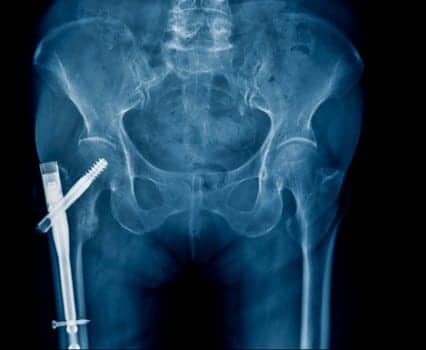Parkinson’s disease, osteoarthritis, rheumatic diseases, alcoholism, and mental health disorders increase the risk of surgical complications after a hip fracture surgery, according to a national database study published recently in Injury.
The study was carried out in collaboration between researchers from the University of Eastern Finland, Kuopio University Hospital, the University of Helsinki, and the Finnish National Institute for Health and Welfare.
The researchers used the Finnish Performance, Effectiveness and Cost of Treatment (PERFECT) database to explore the prevalence of and factors contributing to post-operative surgical complications leading to hospital readmission in hip surgery patients. Surgical complications, such as bone fractures, hemorrhages, infections, and complications associated with implants occurring within 3 months after the hip fracture surgery, were included in the analysis. The data included 68,800 hip fracture patients, i.e. all over 50-year-old patients who had their first hip fracture in Finland in 1999-2011, explains a media release from the University of Eastern Finland.
The analysis shows that the treatment of hip fracture is associated with a significant risk of surgical complications. They estimate that 4.6% of patients experienced surgical complications within 3 months following their surgery. According to the researchers, the high prevalence of complications can largely be explained by the high age of patients and their comorbidities.
The risk of surgical complications was elevated in patients with osteoarthritis, Parkinson’s disease, a rheumatic disease, alcohol dependence, depression, or a psychotic disorder, per the release.
“Special attention needs to be paid to the treatment of hip fracture in patients who suffer from these diseases,” says orthopaedic surgeon Tero Yli-Kyyny, the first author of the article.
Total hip replacement surgery was associated with more surgical complications than other treatment methods, with 10% of total hip replacement surgery patients experiencing a complication. The risk of complications also grew if surgery was delayed.
“For a hip fracture patient, a total hip replacement results in an excellent functional outcome. However, there are surprisingly many complications associated with its use. It seems that careful selection of patients is required when treating their hip fracture with a total hip replacement,” Professor Heikki Kröger from the University of Eastern Finland says.
[Source(s): University of Eastern Finland, EurekAlert]






